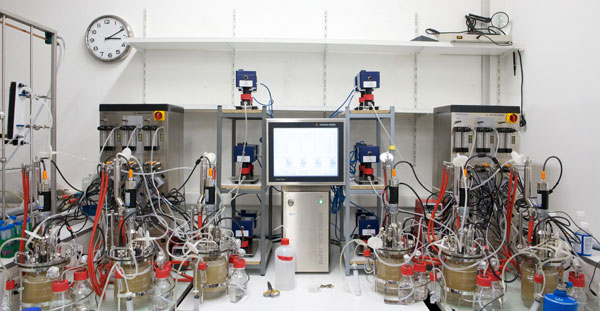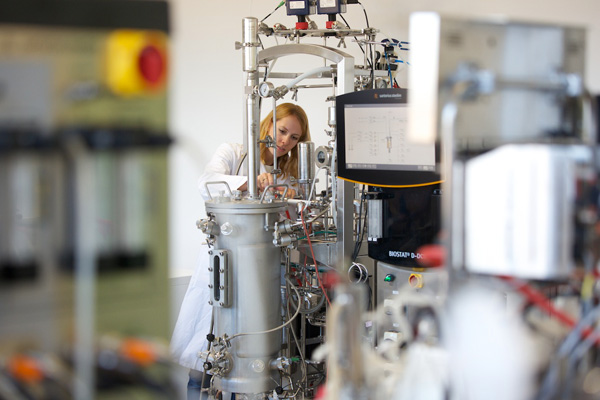Deinove is a French company, founded in 2009 and specialized in phytochemistry, that develops and commercializes industrial processes based on billion years old bacterias, the Deinococcus. Deinove is currently the world leader of this market, and produces large quantity of ethanol and bioethanol out of these bacterias, thanks to non-food biomass. These second-generation biofuels are a responsible alternative to fossile fuels like oil and gas. They allow a smooth energy transition towards green technologies, respectful of the new environmental issues such as global warming, pollution and fossile resources depletion.

A Deinove laboratory.
A bacteria with incredible power
Used in the production of biofuels, this bacteria is a strong added value for cosmetics and pharmaceutical industries. It can eat four types of second-generation non-food biomass, such as agricultural residues (wheat, corn, etc.) and domestic and industrial waste. Deinove CEO Emmanuel Petiot points out: "They really are renewable, responsible and profitable energies."
Learn more about Deinove and the deinococcus.

A Deinove laboratory.
Deinove: leader in research on second-generation biofuel
Deinove is a French company, founded in 2009 and specialized in phytochemistry, that develops and commercializes industrial processes based on billion years old bacterias, the Deinococcus. Deinove is currently the world leader of this market, and produces large quantity of ethanol and bioethanol out of these bacterias, thanks to non-food biomass. These second-generation biofuels are a responsible alternative to fossile fuels like oil and gas. They allow a smooth energy transition towards green technologies, respectful of the new environmental issues such as global warming, pollution and fossile resources depletion.
A Deinove laboratory.
A bacteria with incredible power
Used in the production of biofuels, this bacteria is a strong added value for cosmetics and pharmaceutical industries. It can eat four types of second-generation non-food biomass, such as agricultural residues (wheat, corn, etc.) and domestic and industrial waste. Deinove CEO Emmanuel Petiot points out: "They really are renewable, responsible and profitable energies."
Learn more about Deinove and the deinococcus.
A Deinove laboratory.
Webmaster
About me
YOU MIGHT ALSO LIKE